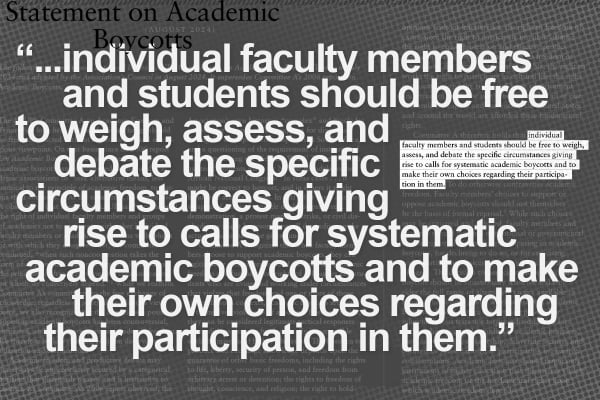The American Association of University Professors (AAUP) recently released a statement regarding the use of academic boycotts as a means of protest. The statement, titled “In Defense of the AAUP’s Statement on Boycotts,” clarifies the organization’s position on the controversial topic and highlights the importance of academic freedom and open dialogue in scholarly discourse.
Boycotts have long been used as a tool for social and political change, and many academics have supported their use in protest against issues such as human rights abuses, discrimination, and injustice. However, the AAUP recognizes that academic boycotts can also have negative implications for academic freedom and the exchange of ideas within the academic community.
In their statement, the AAUP asserts that while individuals have the right to engage in boycotts as a form of protest, academic institutions and organizations should refrain from endorsing or participating in boycotts that restrict academic freedom or the exchange of knowledge. The organization emphasizes the importance of promoting open dialogue and intellectual exchange, even in the face of controversial or contentious issues.
The AAUP’s stance on boycotts is grounded in its commitment to upholding the principles of academic freedom and freedom of expression. The organization believes that academic institutions should serve as a space for the free exchange of ideas and the pursuit of knowledge, and that academic boycotts can hinder this pursuit by limiting the opportunities for collaboration and open dialogue.
Critics of the AAUP’s position on boycotts argue that the organization is stifling the rights of individuals to engage in political activism and that academic institutions should take a more active role in advocating for social justice. However, the AAUP maintains that academic freedom is a fundamental principle that should be upheld in all circumstances, even in the face of political or social pressure.
In conclusion, the AAUP’s statement on boycotts is a reaffirmation of the organization’s commitment to academic freedom and the free exchange of ideas. While individuals have the right to engage in boycotts as a form of protest, academic institutions and organizations should be cautious in their endorsement or participation in boycotts that limit academic freedom. By promoting open dialogue and intellectual exchange, the AAUP believes that academic institutions can continue to serve as a space for the free pursuit of knowledge and the advancement of scholarship.



